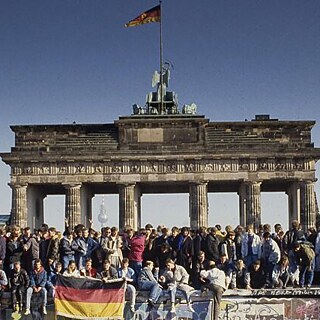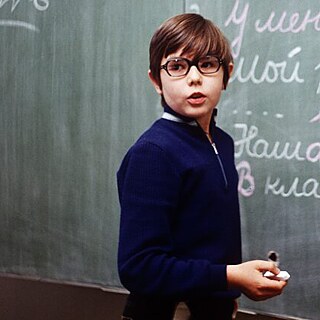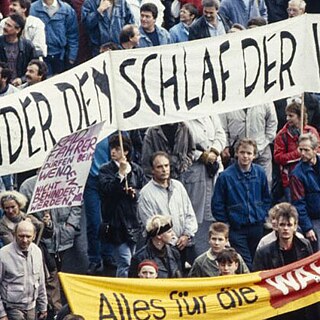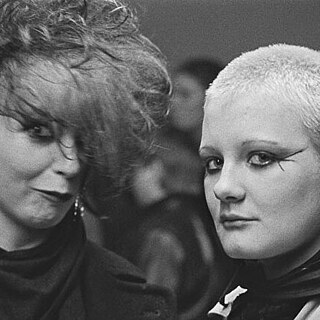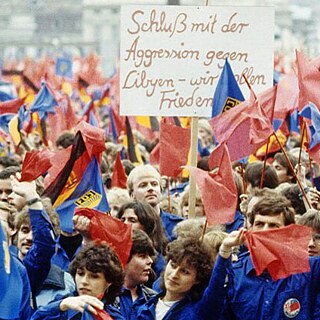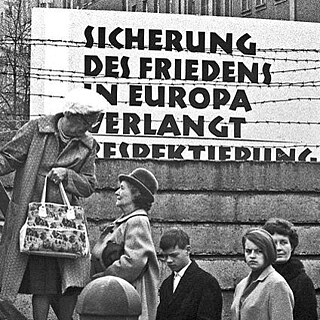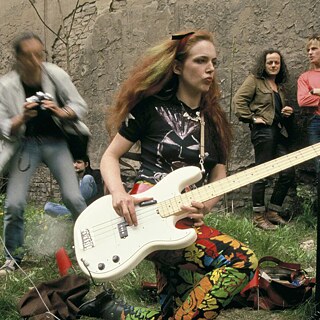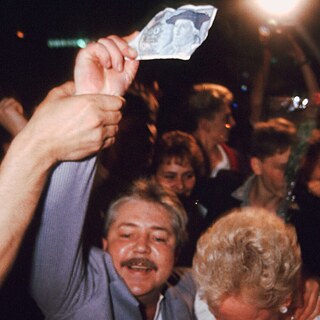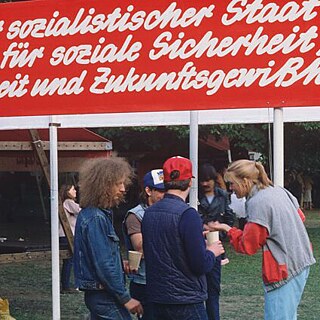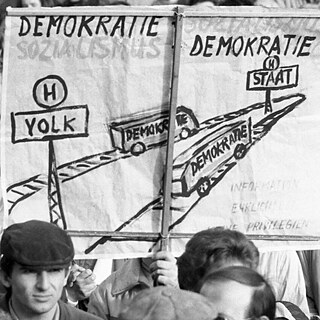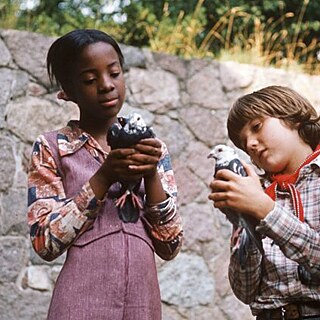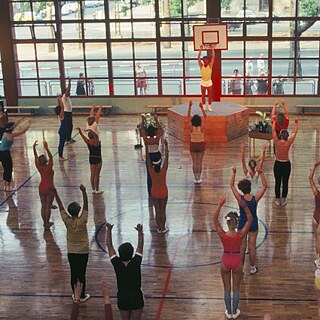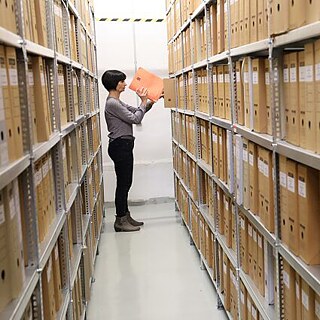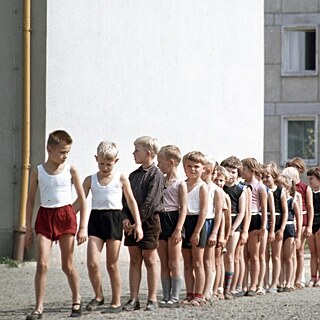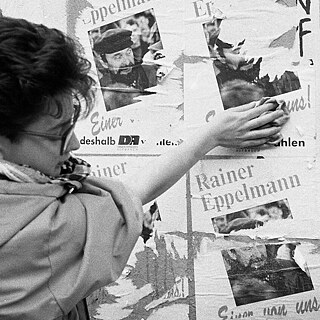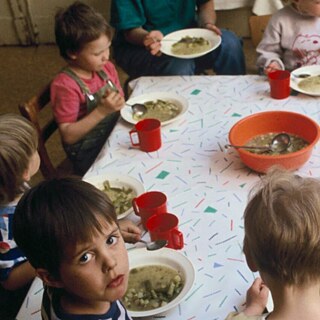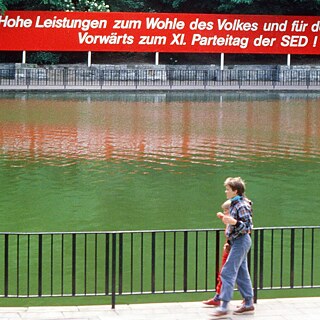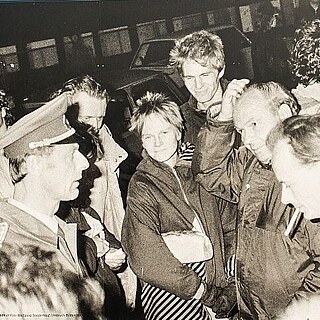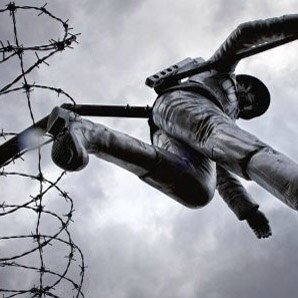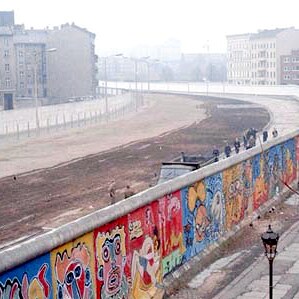
Show description in:
Chapter 14Commonalities and differences FRG vs GDR: Memories
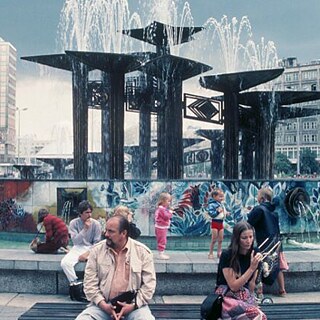
Vergangenheitsbewältigung: German for “coming to terms with the past”. What remains of East Germany (GDR) thirty years after Reunification?
Characteristics
Language level
Target group
Skill

Part of the series Divided Germany, the wall and reunification
26 hits
Description
Vergangenheitsbewältigung: German for “coming to terms with the past”. What remains of East Germany (GDR) thirty years after Reunification? How is the history of the German partition between East and West Germany told and re-told? How do GDR citizens remember a country that ceased to exist overnight? What kind of histories become available once we step out of the mainstream narrative and look at mundane everyday life? What are micro-histories? Finally, why remember?
Videos
1. HOW TO NAVIGATE OPEN MEMORY BOX
415 hours of home movies in the GDR made by East German citizens? Don't know where to start? The Co-founders of Open Memory Box take you on a tour and show how to easily navigate this fascinating project of commemoration.
2. WHAT IS OPEN MEMORY BOX?
Alberto Herskovits and Laurence McFalls, PhD, present their project Open Memory Box for which former GDR citizens submitted private video footage of mundane daily life collected throughout the years.
3. WHY OPEN MEMORY BOX?
Alberto Herskovits and Laurence McFalls, PhD, talk about the importance of hearing unfiltered voices from the GDR in order to write a more nuanced history.
4. WHAT CAN THE US LEARN FROM GERMANY'S COMING TO TERMS WITH THE PAST?
Why come to terms with the past at all? Why remember? Why try to deal with the difficult legacy of it all? Andrew Port, PhD, Professor of History at Wayne State University weighs in.
5. DEALING WITH THE NAZI PAST IN EAST AND WEST GERMANY
German General Consul in NY David Gill talks about how both German states tackled the Nazi past differently.
6. PERSECUTION IN THE GDR
Mario Roellig attempted to escape the GDR in 1987, but was caught and imprisoned in a Stasi high- security prison. Why is his history of persecution in the GDR important? What can it help us understand? In German with English subtitles.
7. THE PAST IN BERLIN`S GEOGRAPHY
Like no other German or European city, Berlin embodies the Cold war division into East and West. 30 years after Reunification, can you still see this division in the geography of the city? Noa K. Ha, PhD talks about everyday encounters with history.
8. THE COLONIAL PAST IN GERMAN PUBLIC DISCOURSE TODAY
Mahdis Azarmandi, PhD, grew up in Germany in the 90ies. What did she learn about Germany's colonial past? And how present is this past in the German public discourse today?
PARTNERS
Bundesstiftung Aufarbeitung der SED-Diktatur (Federal Foundation for the Reappraisal of the SED Dictatorship), German Consulate General New York, German American Partnership Program (GAPP), American Association of Teachers of German (AATG), Transatlantic Outreach Program (TOP) and Spark for German.
Videos
1. HOW TO NAVIGATE OPEN MEMORY BOX
415 hours of home movies in the GDR made by East German citizens? Don't know where to start? The Co-founders of Open Memory Box take you on a tour and show how to easily navigate this fascinating project of commemoration.
2. WHAT IS OPEN MEMORY BOX?
Alberto Herskovits and Laurence McFalls, PhD, present their project Open Memory Box for which former GDR citizens submitted private video footage of mundane daily life collected throughout the years.
3. WHY OPEN MEMORY BOX?
Alberto Herskovits and Laurence McFalls, PhD, talk about the importance of hearing unfiltered voices from the GDR in order to write a more nuanced history.
4. WHAT CAN THE US LEARN FROM GERMANY'S COMING TO TERMS WITH THE PAST?
Why come to terms with the past at all? Why remember? Why try to deal with the difficult legacy of it all? Andrew Port, PhD, Professor of History at Wayne State University weighs in.
5. DEALING WITH THE NAZI PAST IN EAST AND WEST GERMANY
German General Consul in NY David Gill talks about how both German states tackled the Nazi past differently.
6. PERSECUTION IN THE GDR
Mario Roellig attempted to escape the GDR in 1987, but was caught and imprisoned in a Stasi high- security prison. Why is his history of persecution in the GDR important? What can it help us understand? In German with English subtitles.
7. THE PAST IN BERLIN`S GEOGRAPHY
Like no other German or European city, Berlin embodies the Cold war division into East and West. 30 years after Reunification, can you still see this division in the geography of the city? Noa K. Ha, PhD talks about everyday encounters with history.
8. THE COLONIAL PAST IN GERMAN PUBLIC DISCOURSE TODAY
Mahdis Azarmandi, PhD, grew up in Germany in the 90ies. What did she learn about Germany's colonial past? And how present is this past in the German public discourse today?
PARTNERS
Bundesstiftung Aufarbeitung der SED-Diktatur (Federal Foundation for the Reappraisal of the SED Dictatorship), German Consulate General New York, German American Partnership Program (GAPP), American Association of Teachers of German (AATG), Transatlantic Outreach Program (TOP) and Spark for German.
